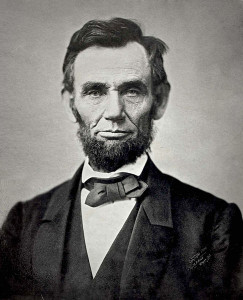 This post was kindly written for us by IHR Digital intern Beth Page.
This post was kindly written for us by IHR Digital intern Beth Page.
As a History and American studies student, I thought it would be interesting to use Connected Histories to explore the British interpretation of Abraham Lincoln. I decided to look for sources that cover three areas that most people associated him with: the Union’s role in the American Civil War, the emancipation of the slaves and his assassination in 1865.
Because Connected Histories comprises a collection of British sources, I didn’t expect there to be a huge number of matches. To make sure the results were as relevant as they could be, I added a date filter – 1859 (the advent of the Civil War) to 1877 (the end of Reconstruction). There were 1,911 matches across 4 resources, 1,816 of these being under British Newspapers. This is not surprising given both Lincoln’s global status and the relatively low level of political interaction between the US and Britain during his years as President, suggesting there would not be too many parliamentary papers referring to him (there were only 29).
One of the most useful sources that I came across are those from Punch magazine, well known for its satire. This meant I was guaranteed a more scathing view of Lincoln, one that perhaps represented an educated, more radical opinion. Unfortunately, the website Science in the Nineteenth-Century Periodical in which the Punch index can be found doesn’t display the articles or illustrations, only a sentence summary. This means wider research is needed, although it is helpful to have a base from which to start searching. Interestingly, one of the results is a picture entitled ‘Britannia Sympathises with Columbia’, a sympathetic title in comparison to their other publications. This was published in May, 1865 alongside a poem that seems to apologize for the way Punch represented Lincoln in the time he was alive. It is an important source as it helps to differentiate the political view of Lincoln from the personal view, clearly two very distinct things.
Although my search returned a large selection of newspaper results, some of them are inaccessible due to the scanning process that leaves the article more or less illegible. Nonetheless the British Newspaper’s website does have a large selection of national and local newspaper archives allowing me to see if opinions differ based on locale. The general opinion seems to be a national mixture of support and criticism of Lincoln’s wartime policy and unsurprisingly, sympathy regarding his assassination.
Connected Histories provides a wonderful base for me to start my research although I don’t feel it has enough resources to reach a firm conclusion, but this may partly be due to do my choice of topic rather than the website. Yet the concept of using connections to save sources found as well as being able to browse other people’s connections helps to make this website a unique and valuable resource for anyone researching British history.
